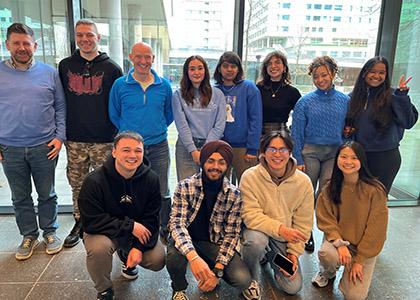Dundalk Institute of Technology recognise that knowledge, skills and competencies can be acquired from a range of learning experiences, including formal, non-formal and informal. This is in line with the National Qualifications Framework (NQF) goals which aim to recognise all learning achievements by supporting the development of alternative pathways to qualifications (or awards) and by facilitating the recognition of prior learning.
The purpose of RPL is to expand access to educational programmes and qualifications for people previously lacking formal qualifications and to reduce the time and cost of programmes for people who already possess some of the knowledge, skills and competences which a programme seeks to develop in learners
What is RPL?
Recognition of Prior Learning (RPL) is a process whereby evidence of learning (formal, non-formal or informal) that has taken place prior to enrolment in higher education is recognised and given value.
A fundamental principle of RPL is that a learner should not be asked to relearn something they already know. With RPL, prior learning can count towards entry, advanced entry, credit or exemptions from modules.
Learning Routes
Prior Learning may have been acquired through formal, non-formal or informal (*2) routes. DkIT’s policy document defines these learning routes as follows: (Link to policy)
- Formal learning is programme-based learning which takes place in an organised formal way. It is specifically designated as learning, with specific programme content, learning objectives, stated duration for the programme and learning support. It typically leads to certification.
- Non-formal learning is intentional from the learner’s point of view. It takes place through planned, organised learning activities but typically does not receive certification. Examples of non-formal learning are: learning and training activities undertaken in the workplace, voluntary sector or trade union and in community-based settings.
- Informal learning is not organised or structured (in terms of objectives, time or learning support). Informal learning is in most cases unintentional from the learner’s point of view. It takes place through life and work experience –and is sometimes referred to as experiential learning. It typically does not lead to certification.
The RPL Process - in Detail
Recognition is a process by which a learner's prior learning is given a value. When considering making an RPL application there are a number of phases in the process to consider.
Learners should firstly understand what RPL is, and how it can be used as either an entry point onto a programme or to gain exemptions from specific modules of a programme. Contacting a DkIT staff member should be one of the earliest conversations a learner should undertake. The first point of contact is the RPL office by email rpl@dkit.ie or a expert staff member such as the Head of Department (HOD) in the school being researched. These experts can assist in navigating the important steps in identifying the most suitable programmes for an learner and how to gain recognition and value from their relevant prior learning.
RPL may apply to modules, on programmes, at all NFQ levels, in all modes of study, and in all disciplines of study. This includes undergraduate, postgraduate taught, and postgraduate research programmes. Full-time and part-time modes of study are included. It can apply to programmes that take place on campus, those that are blended or flexible, and those that involve online or remote learning. Derogations may apply to some programmes due to regulatory/approval body requirements, please discuss this with the RPL office or relevant Head Of Department (HOD).
The following list of examples is indicative and not finite. Please consult the relevant point of contact for any clarification. In general, if an applicant meets the entry requirements of a course, they do not need to consider an RPL application. If a learner does not meet the necessary criteria for a programme they may wish to make an application directly to the Institute.
Learners who have completed a FET qualification and wish to determine if there is a CAO route (using the Higher Education Links Scheme) into their chosen programme, should discuss this to determine if such an option is available to the programme they wish to access.
Learners also have the option of RPL applications for exemptions/credit from specific modules once they successfully register on a programme.
Limitations:
Some programmes may impose a limit on the extent of exemptions allowed due to professional body regulations. Other programmes may not be in a position to accept an application at various times, and this should be confirmed during the research phase of an application.












